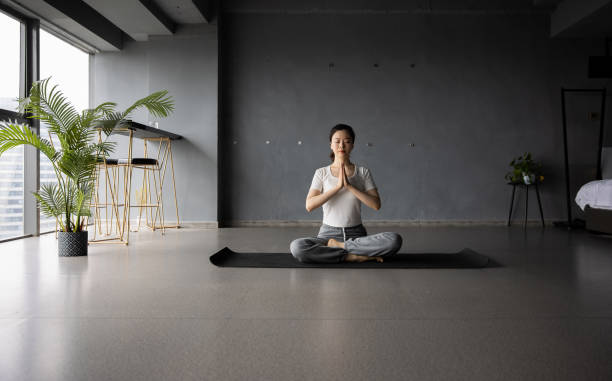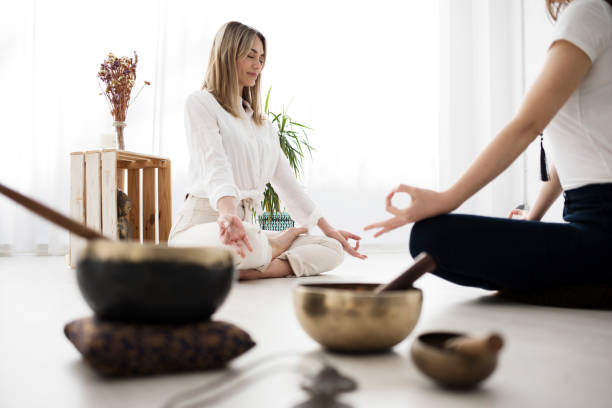Feng Shui is an ancient Chinese practice that involves arranging your living space to create a harmonious and balanced environment. By using Feng Shui principles, you can improve the flow of energy in your home, which can, in turn, enhance your well-being and bring greater harmony to your life. This article will guide you through the basics of Feng Shui and how you can apply it to different areas of your home.
Understanding the Basics of Feng Shui
Feng Shui revolves around the concept of Chi – the vital life force that flows through every environment. To create a harmonious home, it’s essential to facilitate the free movement of Chi. This involves understanding the five elements of Feng Shui – Wood, Fire, Earth, Metal, and Water – and how they interact with each other. Each element represents different energies and qualities that can be beneficial when balanced correctly in your living space.
Declutter Your Space
One of the first steps to achieving Feng Shui harmony is decluttering. Clutter can block the flow of Chi, causing stagnant energy which might lead to stress and disharmony.
- Remove unnecessary items: Go through each room and get rid of items you no longer use or need.
- Organize your belongings: Ensure everything has a designated place to prevent clutter from returning.
- Clean regularly: A clean home supports the movement of positive energy.
By decluttering, you create a clean and open environment where positive energy can flow freely, fostering a sense of peace and balance.
Positioning Furniture Wisely
Furniture placement plays a crucial role in Feng Shui. Arranging your furniture correctly can facilitate better energy flow.
- Command Position: Ensure that key pieces of furniture like your bed or desk are in the command position, meaning you have a clear view of the room’s entrance while using them. This fosters a sense of security and control.
- Free Movement: Avoid placing furniture in pathways and make sure there’s ample space to move around freely.
- Balance and Symmetry: Consider balancing elements like a pair of chairs on either side of a table or symmetrical arrangements to promote harmony.
Thoughtful positioning can enhance comfort and functionality while promoting a balanced atmosphere.
Incorporating the Five Elements
Incorporating the five elements in your home decor can create balanced energy. Each element represents different aspects of life and can be introduced in various ways:
- Wood: Represents growth and creativity. Introduce wooden furniture or plants.
- Fire: Symbolizes passion and energy. Use candles, lamps, or red-colored decor.
- Earth: Associated with stability and nourishment. Incorporate stones, crystals, or earth-toned items.
- Metal: Linked to clarity and precision. Add metal frames, sculptures, or gold and silver accents.
- Water: Relates to relaxation and abundance. Include fountains, mirrors, or blue-colored items.
Balancing these elements ensures harmonious energy in your living space, catering to various needs and emotions.

Optimizing Light and Air Flow
Light and air are vital components of Feng Shui. They symbolize life force, so optimizing their flow in your home is crucial.
- Maximize natural light: Open curtains and blinds to allow sunlight to enter.
- Use mirrors strategically: Reflect light and enlarge space with well-placed mirrors.
- Ensure good ventilation: Keep windows open when possible and use air purifiers for clean air.
Proper light and air flow boost energy levels and ensure a vibrant and invigorating living environment.
Conclusion
Applying Feng Shui principles in your home doesn’t have to be complex. By understanding and incorporating the basics of Chi, the five elements, and decluttering, you can significantly enhance the harmony and balance of your living space. Thoughtful furniture placement and optimizing light and air flow further contribute to a conducive environment. Remember, the goal is to create a space where energy flows freely, fostering well-being and peace.
FAQs
What is the first step in Feng Shui?
The first step in Feng Shui is decluttering your space. Removing unnecessary items and organizing your belongings can significantly improve the flow of Chi, facilitating a harmonious environment.
How do I balance the five elements in my home?
Incorporate the five elements (Wood, Fire, Earth, Metal, and Water) through furniture, décor, and color schemes. Ensure each element is present and evenly distributed to create a balanced energy flow.
Why is the position of furniture important in Feng Shui?
The position of furniture affects the flow of energy. Key pieces should be in a command position, and there should be ample space for easy movement. This promotes comfort, security, and balanced energy.
Can Feng Shui improve my health and well-being?
Yes, Feng Shui aims to create a balanced and harmonious environment, which can positively impact your mental and physical well-being by reducing stress and promoting a peaceful atmosphere.
Is natural light important in Feng Shui?
Natural light is essential in Feng Shui as it represents life force (Chi). Maximizing natural light in your home can improve energy levels and create a vibrant living space.
